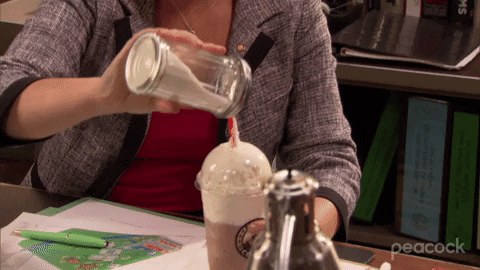- The Daily Tonic
- Posts
- Sugar myths debunked!
Sugar myths debunked!
Plus: The anti-depressant we all need.
Tuesday. It’s official—everyone is over superhero movies. "Madame Web" debuted this past weekend with a dismal $25.8 million at the domestic box office, making it the most recent superhero movie to flop. And it’s not like they can blame it on a slow weekend at the box office—the Bob Marley biopic One Love has raked in $51 million since its release. People still love going to the movies to enjoy a sugary beverage, popcorn, and gummy bears. They just don’t want to watch superheroes anymore.
Speaking of sugary snacks, what are some of the myths around sugar that might not be as true as you think? Let’s dive in.
DEEP DIVE
Everything You Need To Know About Sugar
Sugar is everywhere, and it’s not all in plain sight. We all know the Icee and gummy bears you buy at the movies are full of sugar, but it can also be hidden in foods where you least expect it, from your morning bread to the pasta sauce you pour over dinner.
It's no secret that too much sugar isn't good for us, but with over sixty different names for sugar, figuring out how much is too much can feel like an impossible task. The truth about sugar, like with so many other things, isn't black and white. It's all tangled in myths and misunderstandings, but hopefully, we can use a bit of science to help us navigate our way to healthier choices.
Let's clear up some confusion first. Sugar isn't just sugar. There's a world of difference between the sugar in an apple and the sugar in your favorite soda. The sugar in whole foods like fruits comes packaged with fiber, vitamins, and minerals that slow down sugar absorption and don't spike your blood sugar levels like the added sugars. This natural sugar isn't the enemy. In fact, it's part of a balanced diet and an excellent fuel source for physical activity.
But then, there's the sugar we add to foods, and here's where things get sticky (see what I did there?). From high-fructose corn syrup to the organic honey you might drizzle over your yogurt, all added sugars have a similar effect on your body. They can spike your blood sugar levels and, over time, lead to health issues like obesity and diabetes.
Yes—even natural sweeteners like honey and maple syrup, which do have some nutrients, should be used sparingly. Just because they are “natural” does not mean they get a free pass to sweeten everything in sight.
This might lead you to wonder about fruit. After all, it contains fructose, right? Here's the good news that shouldn’t come as a surprise: eating whole fruit is good for you. It's hard to overeat fructose from fruit, and the fiber in fruit helps keep your metabolism in check. Are there some fruits with higher sugar content than others? Of course. Grapes, bananas, and mangos all tend to top that list, but that still doesn’t make them a food you want to avoid.
Call me Captain Obvious here, but people who eat more fruit tend to be healthier, not less. So, don't skimp on the berries and apples, thinking you're doing your body a favor. You're not.
What about those zero-calorie sweeteners that promise sweetness without the sugar rush? They sound perfect on paper, but the reality is more complicated. Studies show (READ THE STUDY) that artificial sweeteners might mess with your metabolism and even make you crave more sweets.
It's like your body gets tricked by the sweet taste without the calories, and then it starts looking for those missing calories elsewhere. Plus, there's some evidence (READ STUDY) that they could mess with your gut bacteria, which plays a huge role in your overall health.
The key takeaway? It’s important to understand that not all sugar is created equal. Added sugars are the ones to watch out for, not the natural sugars in fruits and dairy. And while it's nearly impossible to cut out all added sugar, being mindful of where it hides can help you make better choices.
We sound like a broken record at this point, but swap out processed foods for whole foods when you can, and remember that the occasional sweet treat isn't going to derail your health goals (as long as it is really “occasional”).
By focusing on whole foods, paying attention to added sugars, and extending the time between your meals, you can take a big step toward better health. Remember, it's about making smarter choices, not cutting out all sugar forever. And don't forget, eating fruit is still a thumbs-up, so don’t listen to anyone who tells you otherwise.
SUPPORT US
Support Our Team 🧡
We're all about making your journey towards better health enjoyable and insightful. By becoming a member of The Daily Tonic family, you're not just supporting us, you're elevating your own wellness journey!
We believe in the power of community and the impact of your support. Your membership helps us continue delivering the best health and wellness newsletter around. If you enjoy starting your day with a dose of wellness wisdom from The Daily Tonic, consider joining us as a member.
